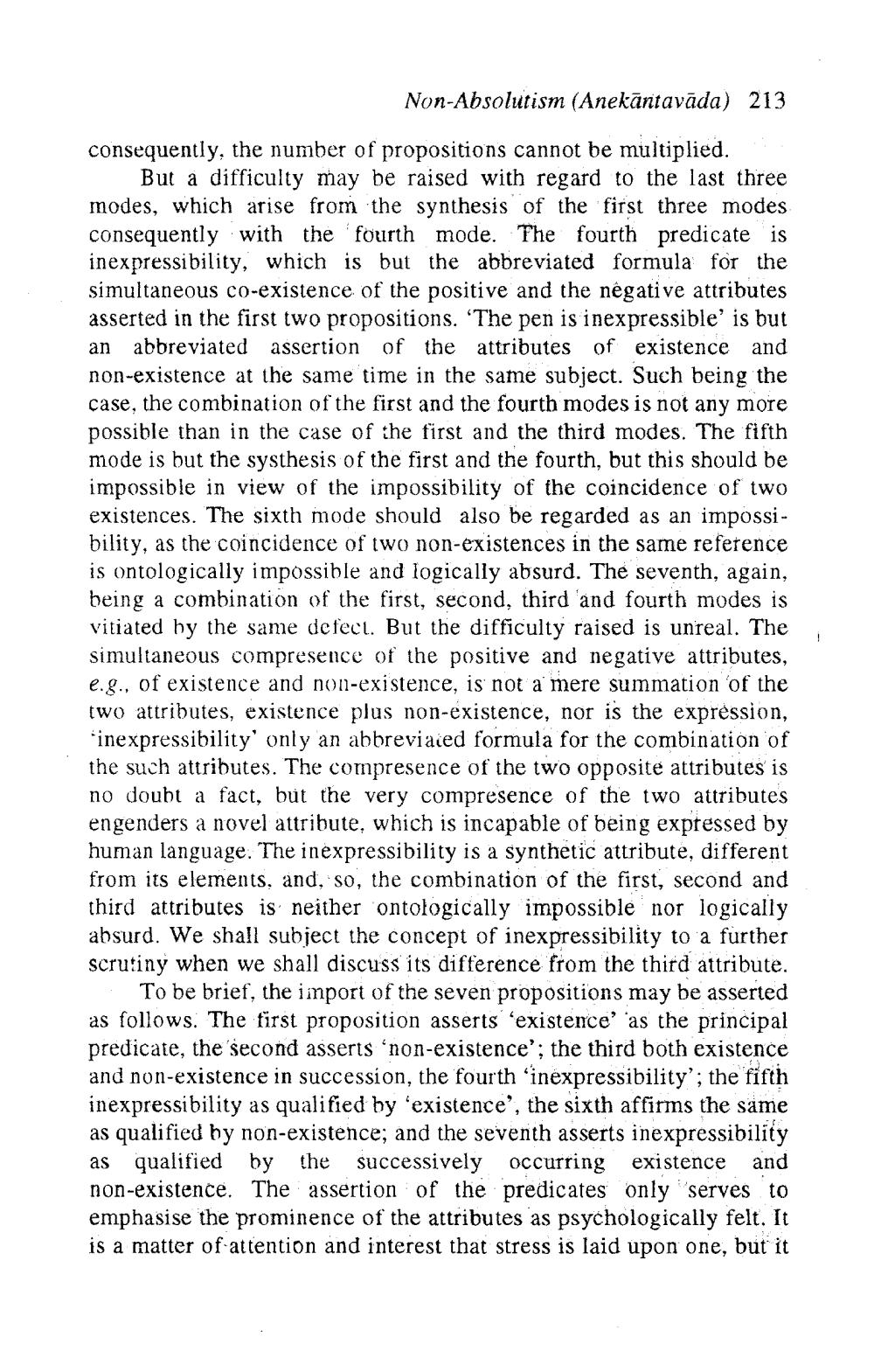________________
Non-Absolutism (Anekāntavāda) 213
consequently, the number of propositions cannot be multiplied.
But à difficulty may be raised with regard to the last three modes, which arise from the synthesis of the first three modes consequently with the fourth mode. The fourth predicate is inexpressibility, which is but the abbreviated formula for the simultaneous co-existence of the positive and the negative attributes asserted in the first two propositions. “The pen is inexpressible' is but an abbreviated assertion of the attributes of existence and non-existence at the same time in the same subject. Such being the case, the combination of the first and the fourth modes is not any more possible than in the case of the first and the third modes. The fifth mode is but the systhesis of the first and the fourth, but this should be impossible in view of the impossibility of the coincidence of two existences. The sixth mode should also be regarded as an impossibility, as the coincidence of two non-existences in the same reference is ontologically impossible and logically absurd. The seventh, again, being a combination of the first, second, third and fourth modes is vitiated by the same defect. But the difficulty raised is unreal. The simultaneous compresence of the positive and negative attributes, e.g., of existence and non-existence, is not a mere summation of the two attributes, existence plus non-existence, nor is the expression, "inexpressibility' only an abbreviaied formula for the combination of the such attributes. The compresence of the two opposite attributes is no doubt a fact, but the very compresence of the two attributes engenders a novel attribute, which is incapable of being expressed by human language. The inexpressibility is a synthetic attribute, different from its elements, and, so, the combination of the first, second and third attributes is neither ontologically impossible nor logically absurd. We shall subject the concept of inexpressibility to a further scrutiny when we shall discuss its difference from the third attribute.
To be brief, the import of the seven propositions may be asserted as follows. The first proposition asserts 'existence as the principal predicate, the second asserts 'non-existence'; the third both existence and non-existence in succession, the fourth 'inexpressibility'; the fifth inexpressibility as qualified by 'existence', the sixth affirms the same as qualified by non-existence; and the seventh asserts inexpressibility as qualified by the successively occurring existence and non-existence. The assertion of the predicates only 'serves to emphasise the prominence of the attributes as psychologically felt. It is a matter of attention and interest that stress is laid upon one, but it




